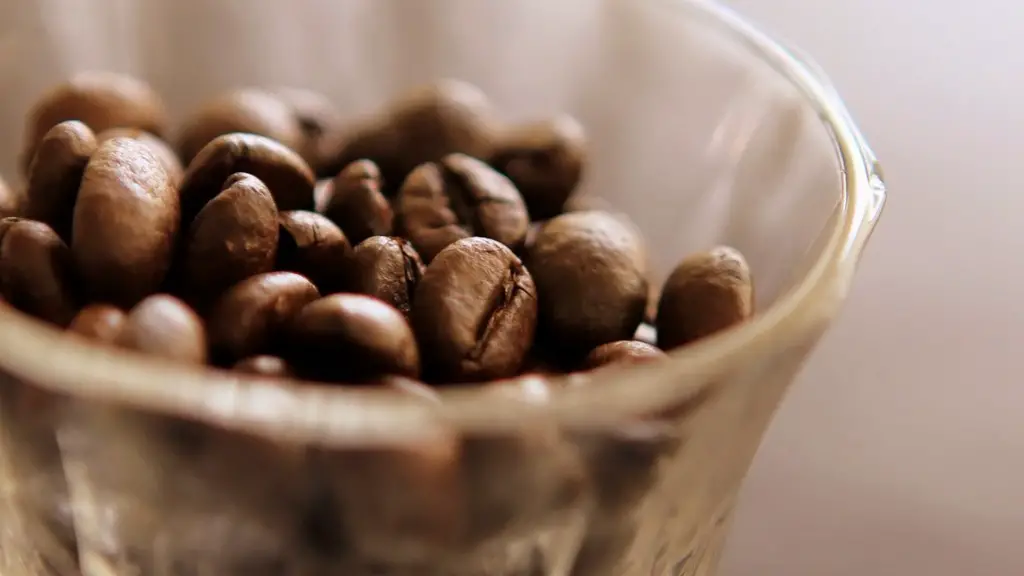Wisdom teeth extraction is a necessary, yet complex and intricate procedure. While there is much speculation surrounding the removal of wisdom teeth, one question still remains: can you drink coffee or tea after wisdom tooth extraction?
When it comes to drinking tea or coffee after wisdom teeth removal, there is not one definitive answer. According to dentists and oral surgeons, drinking hot beverages like tea, coffee, or other hot drinks after wisdom tooth extraction must be done with care and caution. Considering the fact that even the most experienced dental professional cannot 100 percent guarantee that the extraction would be complication-free, it is important for patients to remain vigilant about their precautions. In order to reduce the potential risks associated with drinking hot beverages, many dentists suggest avoiding any type of hot liquids or foods.
The risks of drinking hot beverages or foods after wisdom tooth extraction typically arise during the healing period, generally the first 10 days following the procedure. During this period, the area where the wisdom teeth used to be is very vulnerable and is best to keep it from any harsh climate. Thus, if you choose to drink a hot beverage after the surgery, it is important to wait for a period of at least 10 days and check with your dentist first.
It is also essential to keep in mind some additional preventive measures. The best course of action would be to take in non-carbonated liquids with lukewarm temperatures after the wisdom tooth extraction. The reason for this is that such beverages would reduce the chances of irritating the area, thus significantly minimizing the pain. Moreover, make sure you stick to beverages that do not contain caffeine, as this chemical can interfere with the bone healing process.
In summary, while drinking coffee or tea after wisdom tooth extraction is not completely forbidden, precautions must be observed, such as drinking only cold drinks for at least 10 days afterward or avoiding beverages with caffeine. By practicing such preventive measures and consulting with a dentist or oral surgeon, you can greatly reduce the risk of complications during and after the wisdom teeth removal.
Caffeine And Wisdom Tooth Extraction
Besides the temperature, it is also important to be mindful when consuming beverages that contain caffeine, even if they are served cold. The reason for this is because the main ingredient in the typical cup of coffee or tea is caffeine, a highly stimulating and addictive substance. Caffeine affects the body in a number of different ways and can overwork it, potentially hindering the healing process. For example, caffeine can increase the blood level, making it harder for wounds to recover. Additionally, caffeine can stimulate the nerve cells, leading to increased pain and inflammation.
Furthermore, the amount of caffeine consumed should also be taken into consideration. According to experts, having more than one cup of coffee a day can disrupt the recovery of the gums and increase the healing time. Similarly, if the beverages are consumed too frequently, the wisdom tooth extraction healing process may be delayed, even further increasing the risk of complications.
In conclusion, it is important to take into account the amount and type of beverages that are consumed after wisdom tooth extraction. It is best to stay away from hot temperatures, beverages with high caffeine content as well as any other processed and sugary drinks. Maintaining a healthy diet composed of lukewarm drinks such as smoothies, homemade juices, and soft foods can provide the body with essential nutrients and minerals and help speed up the recovery process.
Other Factors After Wisdom Tooth Extraction
In order to reduce the risk of additional complications associated with drinking coffee or tea after a wisdom tooth extraction, it is also important to take into account the overall health of the patient and other factors that can potentially disrupt the recovery. If a person is prone to developing cavities and gum diseases, not taking such precautions can contribute to further damage. Consuming these beverages regularly can make people more vulnerable to further surgeries, increased levels of pain, and disruption of the healing.
Good oral hygiene is also an essential part of the recovery process after a wisdom tooth extraction. For instance, applying medicated mouth rinses and brushing teeth at least twice a day can help decrease the amount of harmful bacteria in the mouth. Additionally, checking with the dentist periodically can reduce the risk of infections, helping the gums heal faster and more efficiently.
Finally, it is important to keep in mind that it is not just liquids that we consume, but also the types of solids that we eat. Soft, non-acidic foods such as pastas, cooked beans, and mashed potatoes should be consumed in order to reduce the damage. It is also important to avoid chewing on hard and crunchy foods, as this could potentially disrupt the healing process or increase the risk of infection.
Over-the-Counter Pain Medications
In the event of pain, patients can take over-the-counter (OTC) medications, such as ibuprofen and acetaminophen, to reduce the pain and inflammation. If the pain persists, it is important to check with a dentist or a professional to better understand the cause. It is vital to remember that taking OTC medications without consulting a dentist can potentially worsen the symptoms or delay the healing process.
Also, certain vitamins and supplements can be taken both before and after the surgery. Calcium, Vitamin C, and zinc are three important supplements that can help strengthen bones and reduce pain and inflammation. Additionally, Vitamin D can be taken daily to reduce the risk of complications associated with the removal of wisdom teeth.
Herbal remedies are also becoming more popular in the healthcare industry and can be used to reduce swelling and pain after wisdom tooth extraction. For instance, chamomile tea, turmeric, and licorice root are three effective remedies that can be used to reduce the ache caused by wisdom tooth removal.
The Final Considerations
In the end, it is best to stay away from any hot beverages for about 10 days following wisdom tooth extraction. This does not mean that all kinds of hot beverages are forbidden. If patients wish to enjoy a cup of coffee or tea, an appropriate time frame and moderation is key. Paying attention to the specific product, following preventive steps, and consulting with a dentist can help minimize the risks and maximize the results of such a delicate procedure.
Overall, being mindful of what we consume, the amounts, and the temperature of the drinks and food we consume is of utmost importance to the success of any surgery. While the temptation of coffee or tea can be strong, following the suggested guidelines can help ensure the best results and minimal discomfort.




